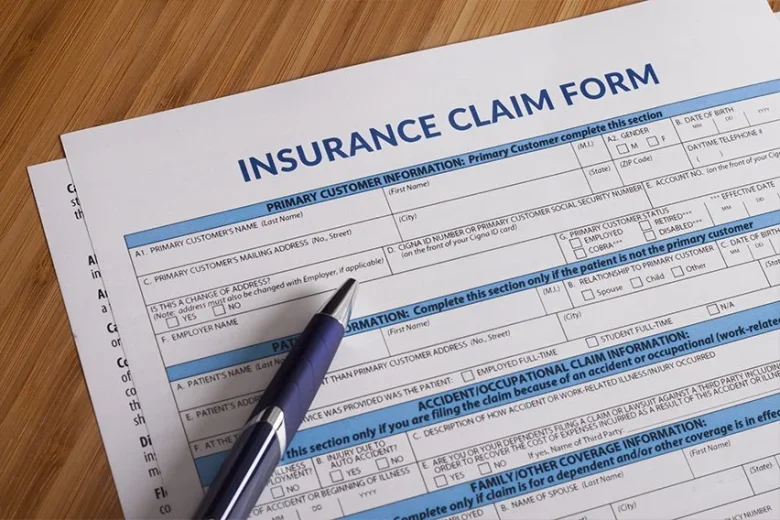There are several perils involved in owning a business, but the payouts make the risks worth it in the end. Happenings like flood damages to one’s office, warehouse break-ins and theft, or even a customer being hurt are commonplace. That is where it gets interesting: business-level insurance can be compared to a safety net in a circus. But wait—how do you even begin to use that safety net once a disaster strikes? This is where the problem arises in a claim—a litany of processes involved in making that insurance company pay! This article is your one-stop solution to all the queries revolving around business-level insurance claims so that the next time you find an unexpected curveball thrown your way, you are ready for it.
Types of Business Insurance
Firstly, let us ask the question: What is business insurance? How many types of business insurance are out there? Business insurance can be compared to snacks in a buffet set. There is general business liability insurance scooped on top. This one helps in instances where there are injury cases like a slip and fall or even instances that would lead to destruction of property The next one in line is the business’s equity risk as well as business space indemnity insurance. Well, if you have employees, worker’s compensation insurance is what will assist you in case they suffer injuries while working. But it does not stop here There are so many more, like professional liability cover for errors and omissions, business overhead cover, cyber protection cover and even product liability cover. The business type would influence the best working combination in relation to these insurance covers. So do you have enough plate at the table.
Filing a Claim
The next step for you after you have purchased an insurance policy and have one is to file a claim. Now this is the one time that insurance companies love their clients the most; surely, given this frequency, the type can fill the large forms with the relevant details as well as the signature as requested by the agent Finally, it is worth noting the ease at which an agent can resolve a case and what makes ultimate difference.
They will investigate the incident, contact people (such as repair companies or lawyers), and eventually come to the conclusion about compensation. Sounds straightforward?
Common Pitfalls
This is where it gets a bit sticky! A lot of businesses fall during the claims process because they do not know their policies or take simple, major steps. Ever heard about someone coming to know that there is no flood damage insurance for them after their office was flooded? Ouch. Another massive mistake is being late to the report. Insurers will even fully reject your claim if you wait for too long to let them know! Oh, and if you forget to put in every detail? A huge mistake! The key to all this is to be forward-thinking. Know the ins and outs of your policy. And don’t sit on your hands when a disaster takes place.
Understanding the Technical Piece
Having said that, believe me, it’s one of the concerns that can break or make any insurance claims. Your policy is just like the book of rules. What are the allowed parts, and what are the banned parts? Are illustrations/drawings going to be paid out for certain things, or are they not? Is this for further coverage where I need to pay a part? To all of them, you need to have an affirmative answer. To that policy, you also don’t have to apply for the first reload; once you enquired about it at some point in time, be ready to take another look at it. Use it every day all day long, while it’s not cool but incredibly useful.
The Role of an Adjuster
The insurance adjuster sounds like a Virginia Jones to claim; they claim somewhere and cut out somewhere or pay out only a certain amount and say what really did happen. But now, go back to where you started and bear that in mind; they aren’t your employees. They reason the amount of pay with how cheap they can get without it being unfair to the insured party. It is important to try to settle matters in such a way that the information that is the claim adjuster is clear and truthful, but in the same breath, assess the figures. And if, in case, you seem to be getting more queries regarding issues that seem to be turning intricate, then there is an alternative of getting one, a public adjuster. They are there on your side to ensure full money for making the claim.
Preparing for the Unknown
Make sure that you have an open mind for this; claims disputes occur. And in the worst-case scenario, sometimes the settlement is too low. How can we alleviate such tension? Ensure that you have everything ready before the worst comes. Perform regular reviews that would assess the risks and check if the current level of coverage is sufficient. Carry out regular photography plus documents strengthening the business’s assets (this includes furniture). Have everything, whether it is receipts, invoices, or warranties, in an organised manner; these items could back up future claims. It’s also best to get to know your insurance firm, which will enable them to understand your business better. It’s like scoping the scene first without the need to scream.
Executing Your Claim
A lot of factors determine the likelihood of your claim, including preparation, determination, and sheer luck. And just because the insurance provider feels like they are the enemy due to issues that have arisen in the past, that does not mean they are your enemies. You are the one who should be educated, alert, and on the move. Knowing your coverage, being careful of your records, and addressing claims promptly could amount to a lot.
FAQs
1. What happens if I do not pay on time?
Set an autopay, preferably; keeping up with due dates is tedious.
2. Am I allowed to submit a request for reimbursement for minor damage?
Yes, however, that is your decision. Making too many claims in succession might lead to increased costs in the long run.
3. What if my claim is refused? What should I do?
There is no need to worry; however, take this in writing. In case you don’t feel its justified, redress the decision or ask for the lawyer’s opinion.
4. How much time will it take to settle the claim?
It varies depending on the claim and how complicated it is. While simple claims can be settled within a few days, more complex claims can take weeks or even months in some cases to settle.
5. How do I determine an appropriate level of insurance coverage needed for my insurance?
You should begin by analysing the potential business risks that your company has and then speak to a broker that can target your industry specifically.



